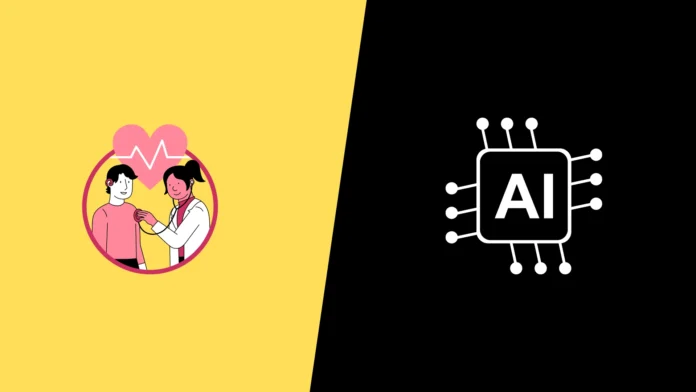Artificial intelligence (AI) is changing patient care management, treatment delivery, and disease diagnosis. This is good news for the healthcare industry. With AI helping to provide more accurate diagnoses, customized treatment regimens, and improved patient outcomes, the field of medicine is rapidly evolving. This article looks at the latest advancements and possible uses of AI in healthcare.
1. AI for Diagnostics and Imaging in Medicine
AI is a vital tool in medical imaging and diagnostics because of its exceptional precision in analyzing massive datasets.
- Enhanced Accuracy
Through image recognition, AI-powered solutions are increasingly being utilized to identify early indicators of diseases like cancer, heart issues, and neurological abnormalities.
- Faster Diagnoses
Compared to conventional methods, AI algorithms can evaluate X-rays, MRIs, and CT scans more quickly, which speeds up diagnosis and treatment planning.
- Early Detection
Artificial intelligence models aid in the early detection of problems, improving the likelihood that therapy will be successful.
2. Tailored Medicine and Therapy Schemes
By examining each patient’s distinct genetic composition, way of life, and medical background, AI provides personalized care by suggesting individualized treatment regimens.
- Precision medicine
By using AI to forecast a patient’s reaction to a certain medication, physicians can tailor a patient’s therapy to meet their specific needs.
- Medication Development
By forecasting the potential molecular interactions between novel chemicals and diseases, artificial intelligence expedites the process of medication discovery.
- Constant Monitoring
Real-time health monitoring is made possible by wearable technology and AI apps, which enhance the treatment of chronic illnesses.
3. AI for Virtual Health Assistants and Chatbots
Virtual health assistants and AI-powered chatbots are becoming increasingly popular for providing 24/7 help and healthcare information.
- Patient Engagement
AI chatbots offer medical advice, organize appointments, and answer health-related concerns, decreasing the workload for healthcare providers.
- Telemedicine
Virtual assistants employ artificial intelligence (AI) to triage symptoms, guide patients, and provide follow-up treatment, improving access to healthcare in remote places.
- Mental Health
AI-powered mental health apps offer therapeutic assistance with anxiety, depression, and stress management.
4. AI for Predictive Analytics in Healthcare.
AI’s predictive analytics skills are changing the way healthcare practitioners forecast health trends and manage patient care.
- Disease Prediction
Using historical data and patterns, artificial intelligence can anticipate disease outbreaks, hospital readmissions, and even high-risk patients.
- Population Health Management
Artificial intelligence (AI) analyzes population data to identify health concerns and provide insights into preventive treatment strategies, cutting total healthcare expenses.
- Preventive Healthcare
By recognizing risk factors in patients early on, AI enables healthcare providers to intervene before illnesses occur.
5. Robotic Surgery and AI-Assisted Procedures.
Robotic surgeries powered by AI are becoming more precise, less invasive, and more efficient.
- Enhanced Precision
AI-controlled robots aid in surgeries by delivering real-time data and allowing surgeons to perform complex procedures more accurately.
- Reduced Recovery Times
Minimally invasive procedures, enabled by AI, result in faster patient recovery and fewer problems.
- Surgical Training
AI-powered simulations are transforming the way medical personnel prepare for and perform surgeries.
6. AI for Healthcare Administration
AI is also streamlining administrative chores in healthcare, which improves operational efficiency and patient outcomes.
- Streamlining Workflows
Artificial intelligence (AI) automates monotonous processes like scheduling, billing, and data entry, allowing healthcare personnel to focus on patient care.
- EHR Management
Artificial intelligence streamlines the management of Electronic Health Records (EHRs), making it easier to retrieve patient information and reducing administrative errors.
- Data Security
AI aids in the detection and prevention of data breaches while also securing sensitive healthcare data.
Conclusion
The use of AI in healthcare is already producing impressive outcomes, ranging from improved diagnoses to better patient care. As technology advances, AI’s involvement in healthcare will expand, providing new opportunities to customize treatments, manage diseases, and streamline healthcare operations. The future of healthcare, powered by AI, promises to be more efficient, accurate and patient-focused.

